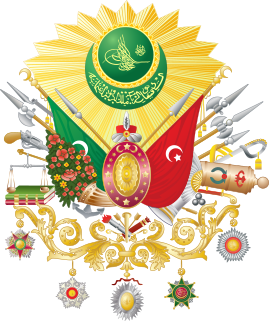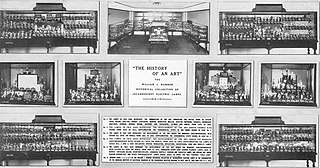 W
WBar Keepers Friend is an American brand of mass-produced cleaning agents. The original canned scouring powder product has been manufactured and sold since 1882. It was invented by a chemist in Indianapolis, Indiana, where it continues to be manufactured by SerVaas Laboratories. The canned product's primary active ingredient is oxalic acid. Bar Keepers Friend has various cleaning uses.
 W
WEvery sultan of the Ottoman Empire had his own monogram, called the tughra, which served as a royal symbol. A coat of arms in the European heraldic sense was created in the late 19th century. Hampton Court requested from the Ottoman Empire a coat of arms to be included in their collection. As the coat of arms had not been previously used in the Ottoman Empire, it was designed after this request, and the final design was adopted by Sultan Abdul Hamid II on 17 April 1882.
 W
WThe Game of Alice in Wonderland is a traditional card game published in 1882 by Selchow and Righter. It is the first game, based on the book Alice’s Adventures in Wonderland by Lewis Carroll. The cards feature colorized illustrations based on the original Sir John Tenniel illustrations.
 W
WThe Hammer Historical Collection of Incandescent Electric Lamps was an exhibit of early electric light bulbs and was collected by William Joseph Hammer. The collection of lamp bulbs is the most comprehensive known in the world. It shows the technology development of the filament electric light bulb during Thomas Edison's lifetime. Hammer's collection was displayed for years in five glass cases at the Headquarters of the American Institute of Electrical Engineers in New York City. It is now housed at The Henry Ford Museum in Dearborn, Michigan.
 W
WA clothes iron is a small appliance that, when heated, is used to press clothes to remove creases. Domestic irons generally range in operating temperature from between 121 °C (250 °F) to 182 °C (360 °F). It is named for the metal (iron) of which the device was historically made, and the use of it is generally called ironing, the final step in the process of laundering clothes.
 W
WThe Moroccan dirham is the official monetary currency of Morocco. It is issued by the Bank Al-Maghrib, the central bank of Morocco. One Moroccan dirham is subdivided into 100 centimes (cents).
 W
WIn cryptography, the one-time pad (OTP) is an encryption technique that cannot be cracked, but requires the use of a single-use pre-shared key that is no smaller than the message being sent. In this technique, a plaintext is paired with a random secret key. Then, each bit or character of the plaintext is encrypted by combining it with the corresponding bit or character from the pad using modular addition.
 W
WSmarties are colour-varied sugar-coated chocolate confectionery. They have been manufactured since 1937, originally by H.I. Rowntree & Company in the UK, and are currently produced by Nestlé.
 W
WA Strandkorb is a special hooded windbreak seating furniture used at vacation and seaside resorts, constructed from wicker, wood panels and canvas, usually seating up to two people, with reclining backrests. It was designed to provide comfort seating and shelter from wind, rain, sand gusts and sunburn on beach seafront resorts frequented by tourists. Other built-in details, like extendable footrests, sun awning, side folding tables and storage space, provide the user with several comforts.
 W
WTelepathy is the purported vicarious transmission of information from one person to another without using any known human sensory channels or physical interaction. The term was first coined in 1882 by the classical scholar Frederic W. H. Myers, a founder of the Society for Psychical Research (SPR), and has remained more popular than the earlier expression thought-transference.